Milan Kundera, author of The Unbearable Lightness of Being, dies aged 94
Reclusive Czech-French novelist Milan Kundera explored states of remembering and forgetting in his fiction while rejecting crudely political interpretations of his work.
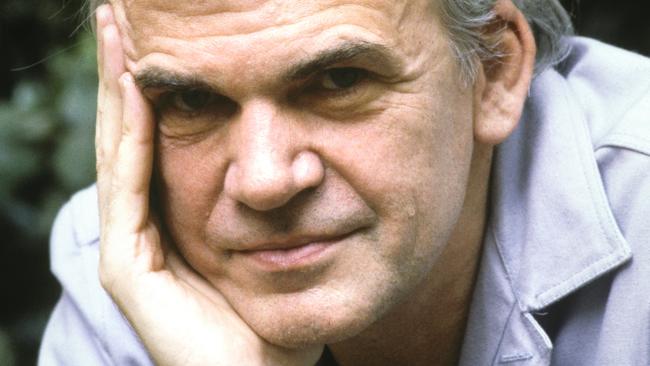
Milan Kundera was one of the best-known cultural figures his country produced in the second half of the 20th century, but his fame went much further than that.
While his relationship with his own country, after his expulsion from communist Czechoslovakia in the 1970s, became more complex and in many ways alienated – especially when he was accused of having been a secret police informer in his youth – he enjoyed something approaching cult status in the wider world.
Indeed, in the 1980s his erotically charged and angst-filled novel, The Unbearable Lightness of Being, became to young, intellectually fashion-conscious western Europeans what The Catcher in the Rye had been to their 1960s counterparts: an accessory to be carried around and read conspicuously, preferably on the Left Bank in Paris.
His literary stand against communist orthodoxy and the totalitarian manipulation of culture, history and memory was part of the attraction. But the subject matter of Kundera’s novels, often centred almost playfully on the complexities of human relationships and erotic behaviour, had an appeal well beyond the purely political; indeed, Kundera angrily rejected what he saw as crudely political interpretations of his work.
Above all, he approached the world with an intellectually restless scepticism and sense of irony. “The wisdom of the novel,” he once said, “comes from having a question for everything.”
And Kundera himself, in his later decades living in France and writing in French, liked to think of himself as a figure who transcended what he saw as the parochialism of a literature and outlook confined to the experiences of his earlier life.
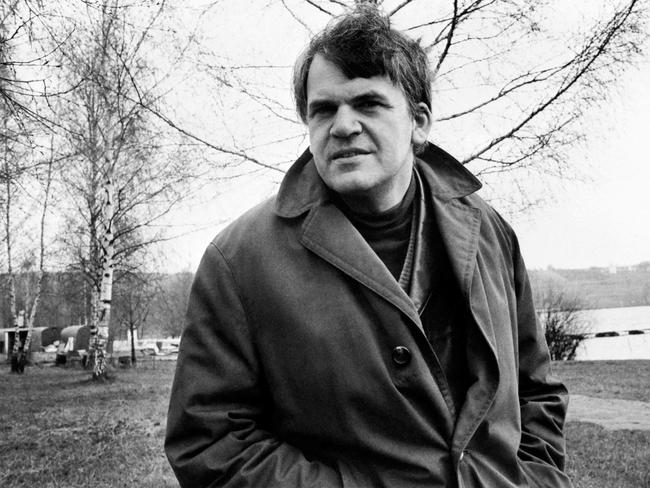
Yet that life was invariably shaped by the extraordinary circumstances of his youth, in a place dominated by the totalitarian age. Kundera was born in 1929, in the Moravian capital of Brno, to Ludvik Kundera and Milada Kunderova (nee Janosikova). Ludvik, who had studied under Leos Janacek, was a professional concert pianist and teacher at the Janacek Academy of Music and Performing Arts, and his passion was for 20th-century music: Bartok, Stravinsky and Schoenberg as well as Janacek.
Kundera’s own interests always ranged widely, from writing to theatre, from film to the music his father loved. He initially intended to become a musician, and studied composition in Prague in the early 1950s, before graduating from the film faculty of the Academy of Performing Arts.
Overshadowing early cultural interests were events he experienced as a schoolboy when the Czech lands were invaded and annexed by the Nazis in March 1939. Then, as he became a student, he witnessed the communist capture of power in Czechoslovakia in 1948.
Like so many young people who had seen Nazism first hand, Kundera was initially an enthusiastic communist. As he later wrote in The New York Times Book Review: “Communism enthralled me in much the way Stravinsky, Picasso and surrealism had. It promised a great, miraculous metamorphosis, a totally new and different world.”
In 1948, at the age of 19, he joined the Communist Party. Two years later, during the Stalinist purges that led to the Slansky show trials, he was expelled, but, with many others, readmitted in 1956.
“I learnt the value of humour during the time of Stalinist terror,” he recalled. “I could always recognise a person who was not a Stalinist, a person whom I needn’t fear, by the way he smiled.”
Kundera had begun publishing work in the 1940s, including translations of the Russian poet Mayakovsky, and his own experiments with surrealist poetry. After the communist takeover his published writings were sufficiently Marxist in outlook to satisfy the censors. He became, as literary historian Jan Culik put it, “a celebrity in communist Czechoslovakia”. He saw himself as challenging some of the most sterile aspects of the “socialist realist” culture promoted by the authorities. Kundera was always keen to relate his work to interwar Czech culture rather than following others in essentially dismissing the pre-communist past.
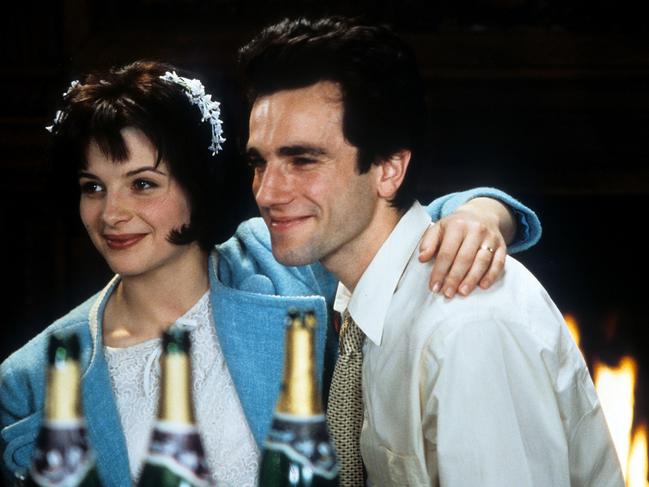
There were poems in the 1950s on how Czechs were experiencing the new communist world. However, some work, like a homage to Julius Fucik, a communist wartime hero, was more crudely propagandist in tone.
Kundera also wrote plays at this time. One, The Keeper of the Keys, dealt with the dilemmas of living under Nazi occupation for one Moravian family. Much of the characterisation and plot conformed to orthodox ideas of heroic communist-led resistance. But there were hints of a more critical approach to the Stalinist “desire for order” at all costs. The Times reported in 1963 on the play’s staging at the Tyl theatre in Prague, praising Kundera as “possessed of an acute sense of the theatre”, and seeing the play as an example of post-Stalinist liberalisation with its implicit criticism of aspects of conformity.
As political liberalisation developed in Czechoslovakia in the 1960s, Kundera was at the forefront of the cultural debate. His popularity had grown with the publication in instalments of what he later claimed to be his first main work, short stories published in books such as Laughable Loves. They featured what became familiar Kundera themes: sexual pursuit, and what erotic relationships reveal more broadly about human nature.
From 1962 he also began writing his first novel, The Joke, about a communist student punished for a joke he sends his girlfriend, and how he seeks to take revenge for his humiliation by humiliating others. It was partly a story about what Kundera called “the schism between body and soul” but also reflected on what communism was doing to his country and its people’s behaviour; how characters, as Kundera put it, “end up in the trap of the joke history has played on them: lured on by the voice of utopia, they have squeezed their way through the gates of paradise, only to find, when the doors slam shut behind them, that they are in Hell”.
When Kundera delivered his novel to the publishers he could hardly have believed it would escape communist censorship. Yet such was the speed of change leading up to the Prague Spring political reforms of 1968 that it was published uncensored in 1967, and devoured by many Czechs as part of an exhilarating cultural liberation. This period, he recalled later, was the happiest time of his life.
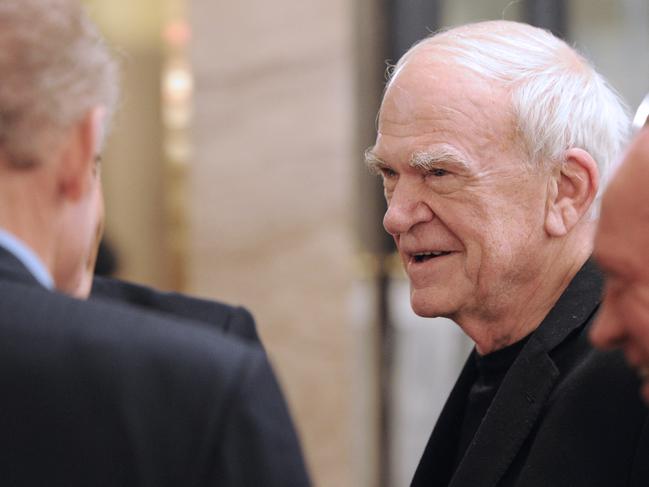
Kundera’s celebrity was confirmed by this novel and a speech he made at a writers conference in 1967 in which he compared the period with the 19th-century struggle for national values in Czech culture and society. The following year cultural and political liberation ended swiftly after the Soviet-led invasion of Czechoslovakia. The Joke was among many publications banned, though it was to be published in translation abroad, as Kundera’s international reputation began to grow rapidly.
Further novels, Life is Elsewhere and The Farewell Party, were published in translation in the mid-1970s. Kundera’s increasing links abroad and fascination with French cultural figures in particular were confirmed in 1975 when he was invited to become guest professor at the University of Rennes.
He felt relief at escaping the pressures of life in “normalised” communist Czechoslovakia, but his time in France was envisaged as only temporary, and Kundera meticulously maintained the conditions laid down by the authorities in Czechoslovakia.
However, in 1979 he was stripped of his citizenship and his exile in France became permanent – he became a French citizen – after the French publication of The Book of Laughter and Forgetting. In this novel, stories of human relationships and erotic tension were interspersed with ironic or sceptical reflections on everything from history and music to the nature of laughter and memory. Like music, Kundera said, “the synthetic power of the novel is capable of combining everything into a unified whole”.
Memory, personal and political, became a significant preoccupation for Kundera in exile. He saw Soviet power in Czechoslovakia as furthering “organised forgetting”, removing a nation’s awareness of its past. He feared that a central Europe composed of small nations but capable of enormous cultural depth, exemplified by the likes of Kafka, Mahler, Einstein and Freud, was disappearing while the rest of Europe stood indifferently and ignorantly by. This view, especially Kundera’s hostility towards Russian culture, caused much debate, with some responding that the central Europe he championed had been destroyed far more by Nazism than by Russian influence.
In the mid-1980s, The Unbearable Lightness of Being, Kundera’s most popular novel internationally, was published. It explored existential questions about love, death and the sense of heaviness provided by memory and the contrasting lightness of forgetting. Complexity and misunderstanding in human relationships were again prominent, but in this novel the effect of exile and return across the Iron Curtain was also explored.
What Kundera saw as the destructive naivety of left-wing idealism was revisited in its Czechoslovak context in the 1950s, but also in a western Europe of the 1980s of which Kundera, as a direct observer, was increasingly critical. The novel was made into a film in 1988, starring Daniel Day-Lewis and Juliette Binoche.
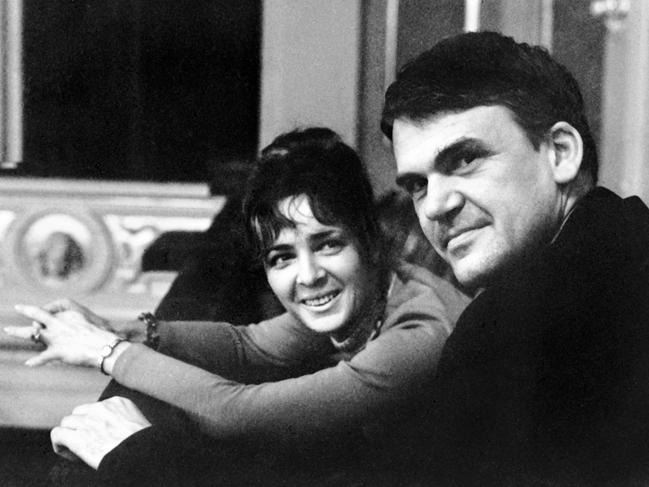
Kundera withdrew from contact with interviewers and journalists, whom he saw as inveterate trivialisers, forever attempting to see his work in crudely political terms when, as he once put it, “purely political thought can never comprehend political reality”. However, his deliberate distance from the struggle still faced by Czech cultural figures living under communism did cause much resentment back in Czechoslovakia. Kundera, for his part, began to write and publish in French, and refused or delayed publication of many of his works in Czech translation.
He settled in an elegant flat in Montparnasse in Paris with wife Vera Hrabankova, a composer who shared Kundera’s fascination with the culture of music. They had married in 1967. Later she became his agent, fielding endless calls and requests as the notoriously reclusive Kundera became the subject of much international interest.
The end of Czechoslovak communism in 1989 left Kundera an even more reclusive figure in many ways, railing against the shallowness of life and culture in the West, or kitsch, as he often termed it, and now also in his homeland, as it embraced global consumerism. He did not, as many exiles from communism did, rush back to live in Prague and greet the new freedom. His new writings, such as Slowness and Ignorance, were preoccupied much more directly with philosophy than with politics.
Tensions between Kundera and his homeland reached a peak in 2008 when a researcher at the Prague Institute for the Study of Totalitarian Regimes accused him of having informed on a fellow Czech in 1950, leading to that individual’s imprisonment in a hard labour camp for 14 years. The accusation was published in a prominent Czech magazine and attracted huge media attention.
Kundera angrily rejected the claim as “pure lies” and complained of the “assassination of an author”. He expressed bafflement at how his name had appeared in police files. Others, speaking in his defence, pointed out how unreliable such files could be, or that, as former dissident and Czech president Vaclav Havel put it, such an event, if true, should be viewed “through the prism of its own time”. In the poisonous atmosphere of the 1950s, in other words, all kinds of pressures and compromises were forced on individuals in the struggle to survive.
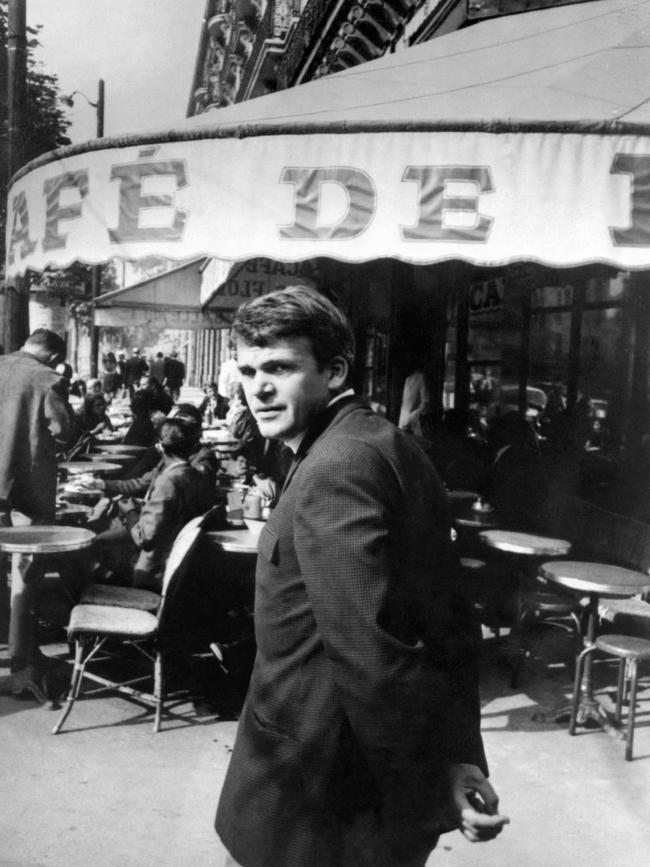
It was, ironically, a scenario made for a fictional treatment by Kundera, relishing the ambiguities and uncertainties of memory. In a collection of essays, The Curtain, he had explored the contradictions of witnesses, documents, archives, the fragility of our “certainties about the past” beyond the “slender margin of the incontestable”. There was now much fascinated speculation as to how far Kundera’s portrayals in, say, The Keeper of the Keys or The Joke about the dilemmas of living under totalitarianism had been informed by acute personal experience.
It was the kind of journalistic speculation about his work that he loathed. Yet his visceral hostility to the media restricted his willingness to put his own side of the story, however clouded his memory might have been. While his international reputation remained strong, and authors including Salman Rushdie, Orhan Pamuk and Nadine Gordimer spoke publicly in his defence, the episode reinforced his alienation from his homeland.
In the end, Kundera will have seen the episode as final confirmation of what he saw as the great cultural trend his work aimed to resist. “All over the world,” he once told writer Philip Roth, people “prefer to judge rather than to understand, to answer rather than to ask, so that the voice of the novel can hardly be heard over the noisy foolishness of human certainties.”
There was some late reconciliation with his homeland in 2019, when Kundera and his wife had their Czech citizenship restored. Occasionally he returned to visit his home city of Brno, but always incognito.
Milan Kundera, novelist. Born Brno, Czechoslovakia, April 1, 1929. Died Paris, July 11, age 94.
The Times

